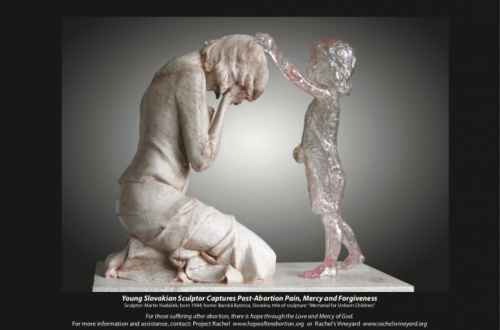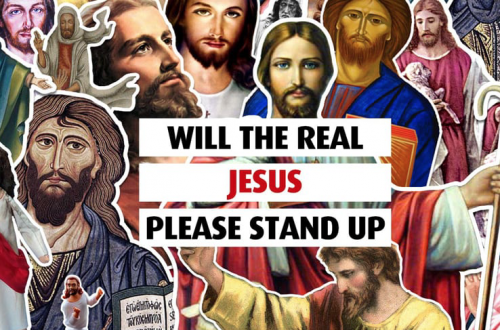Jesus-the only way to God
Pastor and author, Peter Burfeind, has done extensive research concerning the ways in which modern-day America has undergone a “spiritual revolution toward Gnosticism.”[1] The prevailing theory is that the idea of “God” arose within “human consciousness over millions of years.”[2]
Notions, then, about the divine are considered to be abstractions of human thought and communicated in the “myths and teachings of any religion.” This includes Buddhism, Hinduism, Mysticism, and Christianity (to name a few representative examples).
As the argument goes, Christianity is one of many potential pathways to connect with a “trans-cosmic” deity. In turn, the Old and New Testaments are the “result of geniuses”—namely, “prophets and poets”—drawing inspiration from common “archetypal truths of the human psyche.”
In contrast with the above form of “Gnostic spirituality” is the “orthodoxy” of the apostolic Christian faith. Consider the Fourth Gospel. It reveals that the eternal Son left the glories of heaven to tabernacle with humankind in space-time history (1:1–2, 14).
Why did the Son humble Himself in such a dramatic manner? It was so that the lost might receive eternal life through faith in Him (1:12; 20:31). As the true Servant of God, Jesus sacrificially died on the cross and rose from the dead (Isa 52:13–53:12). In this way, He made the Father known (John 1:18).
Moreover, during Jesus’ final meal with His disciples, He showed what it truly means to be a servant (John 13:1–11). Even though He forever is the Son of God, He voluntarily chose to wash the feet of His disciples.
Jesus’ act was so deferential that at first Peter refused to allow the Lord to wash Peter’s feet. Jesus told Peter and the others with them that unless the Savior performed this act, He could not accept them as one of His own.
After washing the disciples’ feet, Jesus explained that He had set an example for them. It was indicative of how they were to serve one another in a humble and sacrificial manner (vv. 12–17).
During this time, Jesus spoke at length about the purpose of His earthly ministry and His followers’ responsibilities as His chosen apostles. Jesus also warned that one of them would betray Him and said that He was about to depart from them (vv. 18–35).
Next, Jesus noted Peter’s denials, which further disturbed the disciples (vv. 36–38). Although they had proclaimed their faithfulness to Him, Jesus knew they would falter during His darkest hour. For this reason, they would need some comforting words to recall.
The Savior began by urging His disciples to calm their troubled hearts (14:1). The way to do this was for them to put their trust in the Father as well as in the Son.
It is remarkable that Jesus focused on consoling His followers rather than dealing with His own needs. The treachery of Judas and the fickleness of the rest of the disciples did not prevent the Savior from still being a calming presence among them. In this way, He proved to be the ultimate source of peace (Luke 24:36; John 14:27; 16:33; 20:19, 21, 26; Col 3:15).
Next, Jesus spoke about heaven, perhaps to further ease the minds of His followers. He referred to the sacred abode as a large house (Isa 6:1–4; 66:1). This palatial domicile belonged to the Father, offered plenty of room, and would be the believers’ eternal home (Rev 21:1–4, 9–27).
Even though Jesus was leaving the disciples, He was going there to prepare a place for them. Jesus told the disciples that if this were not so, He would not have made this promise to them (John 14:2).
Jesus’ pledge, however, was true. Consequently, the disciples could count on Jesus one day returning to bring them back with Him to heaven (v. 3). The disciples’ reunion with the Savior would be fulfilled no matter what happened to Him or them.
Throughout Jesus’ public ministry, He had been teaching the Twelve what it meant to be His followers. Now He said they should implicitly understand where He was going.
The Redeemer’s journey included experiencing treachery, dying on the cross, rising from the dead, and ascending to heaven (12:27–33). As Jesus’ disciples remained in living union with Him (15:4–5), they would dwell throughout eternity with Him in heaven (14:4).
Thomas openly expressed his confusion. Undoubtedly, the other disciples also felt perplexed. They did not know where Jesus was going, and they did not know the way to get there (v. 5).
After all, a short while earlier, Jesus said His disciples could not travel with Him to His final destination (13:33). Understandably, these statements, when taken together, baffled them.
Jesus’ reply to Thomas is the most profound “I am” declaration in the Fourth Gospel. Jesus not only identified who He is, but also made it clear that He is the sole path to God (John 14:6; see Acts 4:12).
When Thomas asked Jesus to point the group in the right direction, Jesus did not hand Thomas a road map and identify a route they should to take. Jesus also did not give Thomas and the rest of the disciples an itemized list of rules to follow, sacrifices to offer, and festivals to observe. Instead, Jesus told them that faith in Him alone is the exclusive way to God (John 1:12; 3:16; Rom 3:18; Gal 2:16).
In a few hours, some of Jesus’ followers would see Him dying on a cross and wonder how the preceding statement could be valid. After His resurrection and ascension, they would realize that as the one who atoned for their iniquities, He is the only link between God and repentant sinners.
Today, when many nonbelievers hear that Jesus is the only way to God, they become offended. Accusations of bigotry, arrogance, and narrowmindedness abound toward those who believe this truth.
Nevertheless, there simply is no other path to God. Despite all the lies that the elitists charged against Jesus during His public career, His words, deeds, and character have shown Him to be the incarnation of divine truth.
Nothing Jesus ever taught has proved unreliable. In Him we see the truth of God in action. And what better proof of knowing that Jesus is the life than His spectacular resurrection. Indeed, only Jesus has the power over life and death (Rev 1:18).
Previously, Jesus’ disciples had not fully known Him. They had seen glimpses of His real identity and had a partial understanding of who He is.
Yet, the disciples had not fully experienced the Son. Otherwise, they would have known that they were seeing what God the Father is like by seeing the Son. In the coming days, however, they would know Jesus and so they would know God (John 14:7).
In the spiritual realm, it is easy to get disoriented and lost. It happens all the time to a lot of people. The only way, though, to get and stay on track is for us to put our faith in Jesus. Only He can guide us to the Father in heaven and make Him known to us.
When Jesus is at the center of our lives, we benefit from the divine truth and life Jesus brings. He also enables us to be more effective in our Christian service.
With Jesus as our trustworthy guide, we can do great things for God, things that will bring Him honor and last for eternity. Also, with Jesus as the focal point of our praying, we are sure to make requests that are in harmony with the will of God. We can rest assured that the Creator is certain to answer such petitions!
_______________________________________________
[1] See Peter Burfeind’s website, “Gnostic America” (www.gnosticamerica.com), along with his similarly titled book, Gnostic America: a reading of contemporary American culture and religion according to Christianity’s oldest heresy (2014; Toledo: Pax Domini Press).
[2] Peter Burfeind 2018. Is Dr. Jordan Peterson a gateway drug to Christianity, or just a highbrow Joel Osteen? Alexandria: The Federalist. Website: thefederalist.com/2018/02/01/dr-jordan-peterson-gateway-drug-christianity-just-highbrow-joel-osteen/.



